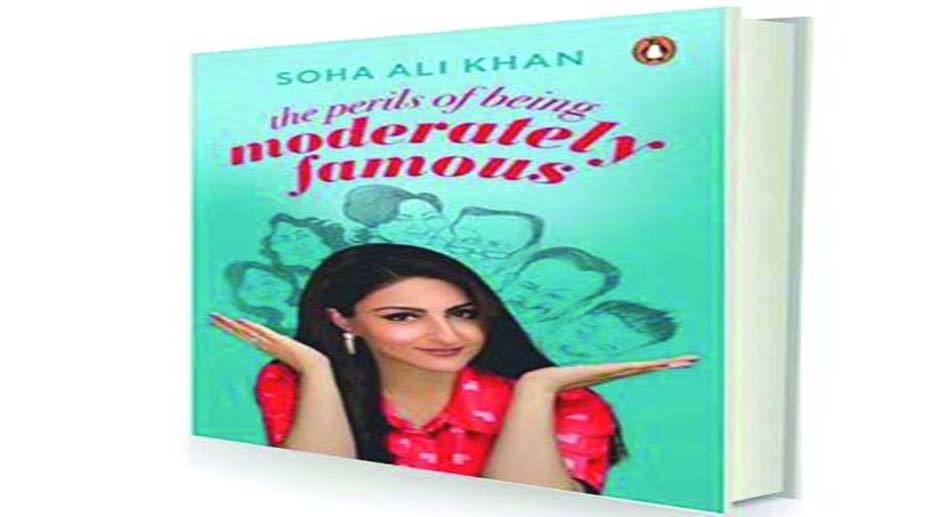It is not common to write an autobiography at the age of 39, when it can be assumed that all one’s major triumphs are yet to come. Nearly all celebrity books are drivel. This one by Soha Ali Khan is not, and it is not ghost-written, either.
Anyone who buys this book will already be familiar with Soha’s glittering ancestry on both the paternal and maternal sides of her family, stretching beyond and wider than her Indian cricket-captain father with his royal lineage of Pataudi and Bhopal, and her mother’s familial connections with India’s top intelligentsia and personal involvement in the film industry, her debut being under the directorship of no less than Satyajit Ray. A helpful family tree reveals her mother’s family ties with Rabindranath and Abanindranath Tagore.
Soha’s brother and sister-in-law are leading lights of the Indian film industry. As the author writes with some justification, “I am immensely proud of my heritage,” and she acknowledges that she has benefitted from the opportunities she has derived from this.
As the title would suggest, one of the qualities of this book is its droll whimsical humour, which is fetching. However, it is very hard to maintain this attribute over 210 pages unless the author is a James Thurber or SJ Perelman; and so there is no surprise when the mood is broken after page 134 with a chapter-travelogue on Paris and the Sahara — which sits uneasily with the rest of the narrative — followed by one on Soha’s relationships with men, ending with her wedding; and a final one, very sensitively written, on pregnancy, that has the ring of complete truth.
Soha devotes one chapter to her father and one to her mother. She shows a penetrating understanding of her father’s taciturn character, which he combined with loving dedication to his immediate family. Interestingly, nowhere in the book is he referred to by the nickname of “Tiger”, which was in common use by the media. Her mother was her role model, “the wisest and most sensible person I know,” liberal and independent, giving unfailing good advice, often discreetly rendered.
Beginning her working life as a banker, Soha chose to be a film actress because of the creative side of the industry, though it is quite remarkable to the layperson to what extent happenstance seems to play a major role in securing the “big break” — “random but fortuitous series of circumstances,” as the author puts it.
Many of today’s Indian stars appear to have been plucked from nowhere without any previous knowledge, let alone experience of drama, theatre, stage-craft or the elementary mechanics of filmmaking. Soha herself has only ever auditioned for one film. Also remarkable to the outsider is the revelation that the main recreation of film actors appears to be social media or the watching of films.
Soha made her film debut at 25 in a low-budget Bengali film, and she felt the withdrawal symptoms, which come from finishing a project. She describes the egocentricity, self-absorption and insecurity of actors, with their morbid fear of being forgotten. Soha seems from this book to be exempt from these failings, though she once reveals herself, without tongue in cheek, “as someone who had always excelled in everything…”
There are some serious reflections in this book on the Indian film industry and career choices. And since the question is relevant after the fall-out of the Harry Weinstein scandals, it is worth mentioning that readers will search in vain for references to the casting couch. Soha condemns trolling and sexism on social media in which she appears to be an active participant. She bestows praise on Mumbai and its spirit — “the city refuses to be brought to its knees” — though it has to be said that this is equally true for all cities across the world.
Soha has written a charming book, though the “perils” of being famous, even moderately so, are by no means obvious. The reader will assess her as a person they would like to meet, which after all, is the only yardstick for judging an autobiography. She laments that “an unkind review can still jar to the bone”. I hope she will not consider this one to be unkind.
The reviewer is India’s former foreign secretary












